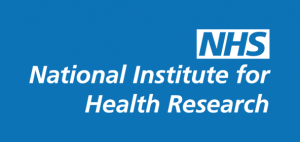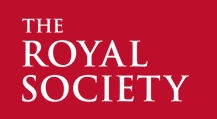The following funding opportunities have been announced. Please follow the links for more information.
Biotechnology and Biological Sciences Research Council
BBSRC and the MRC, under the Global Challenges Research Fund, invite expressions of interest for their call for Networks in Vector Borne Disease (VBD) Research. This call forms part of BBSRC’s and MRC’s activities under the Global Challenges Research Fund (GCRF) (see related links) and therefore requires Networks to address VBD challenges primarily relevant to the health or prosperity of Low and Middle Income Countries on the Organisation for Economic Co-operation and Development (OECD) DAC List. The funders aim to support multidisciplinary Networks which foster collaboration, facilitate wider cross-disciplinary integrative participation (including environmental and social science research) and build capability which together will contribute to and underpin the development of novel strategies to control VBD of plants, animals and humans. Five key research priorities have been identified: Development of new control strategies for VBD in particular non-chemical vector control methods such as genetic control; Increased understanding of fundamental vector biology and vector ecology; Understanding what is driving the emergence and expansion of VBDs; Increased understanding of vector pathogen interactions; Improved diagnostics, surveillance and forecasting.
Maximum award: Not specified. Closing date: Expressions of interest 4pm, 03/11/16.
British Academy
British Academy, in collaboration with the São Paulo Research Foundation (FAPESP), the National Council for the State Funding Agencies (CONFAP) and the State Funding Agencies (FAPs) in Brazil, and the Academy of Medical Sciences, the Royal Academy of Engineering and the Royal Society in UK, under the Newton fund programme, invites applications for its Fellowship and Young Investigator awards. In the State of São Paulo, the call is open for UK visiting researchers to visit research groups in São Paulo. FAPESP will also offer an opportunity for young investigators from the UK to start a research career in a university or research institution in the State of São Paulo through its Young Investigator Awards. The UK Academies will also offer Newton International Fellowships and Newton Advanced Fellowships to the Brazilian research community, covering the fields of natural sciences, social sciences and humanities, and medical (including clinical and patient-orientated research) sciences. Mobility grants will also be offered to the Brazilian research community, covering the fields of natural sciences, social sciences and humanities, and engineering.
Maximum award: Not specified. Closing date: 12pm (Brazil time), 24/10/16.
Engineering and Physical Sciences Research Council
EPSRC, on behalf of the RCUK Energy Programme (RCUKEP), invites applications for the DoE NEUP programme. In particular the RCUKEP will support the UK component of proposals including US/UK collaboration in the following specific areas: Radioisotope Retention in Graphite and Graphitic Materials; Materials Ageing and Degradation; Reactor Safety Technologies; Materials Recovery; Advanced Waste forms; Advanced Fuels ; Used Nuclear fuel disposition: Disposal; Nuclear Energy Advanced modelling and simulation.UK applicants wishing to engage in this programme should liaise directly with their US partners. Appicants must submit an expression of interest (pre-applications), which shoulbe be submitted by the US partners to the DoE.
Maximum award: Not specified. Closing date: Pre-aplications 14/09/16.
Medical Research Council
MRC and the ESRC invite applications for their Skills Development Fellowships, which enable early-career researchers to develop new skills in a priority area as well as researchers at all career stages willing to transform their career. The scheme currently invites proposals that focus on any of the following priority areas within a UK and/or global health context: Quantitative Skills – covering mathematics, statistics, computation and informatics applicable to any biomedical or health related data sources, from molecular to population level. These skills can be applied across the full range of the MRC’s remit, for example, cell biology, physiology, epidemiology, population and public health, and health psychology; Skills at the social science interface – with a focus on areas of health economics and/or mixed methods research.
Maximum award: Not specified. Closing date: 14/06/17.
Natural Environment Research Council
NERC invites application for its Follow-on Fund Pathfinder awards, which enable researchers to develop projects that will realise the commercial potential of NERC-funded research via a combination of complementary technical and commercial engagement work programmes. Pathfinder awards are designed to fill knowledge gaps via activities such as market assessment and competitor analysis, intellectual property searches, engaging with potential commercial collaborators and end-users, and ‘milestone 1’ technical work where the technical feasibility of the whole project depends on it. The fund is open to researchers with current or past NERC funding. Proposals for Follow-on support must build on the outputs of recent or previous NERC-funded research activity.
Maximum award: £20,000 (80% fEC). Closing date: 4pm, 27/09/16.
The Royal Society
Royal Society, in collaboration with the EPSRC and Rolls-Royce, invites applications for its Industry Fellowships. The Fellowships are for academic scientists who want to work on a collaborative project with industry and for scientists in industry who want to work on a collaborative project with an academic organisation. The scheme aims to enhance knowledge transfer in science and technology between those in industry and those in academia in the UK.
Maximum award: Not specified. Closing date: 29/09/16.
Royal Society and the National Natural Science Foundation of China invite applications for the cost-share programme of their International Exchanges scheme. This scheme is for scientists in the UK who want to stimulate new collaborations with leading scientists overseas through either a one-off visit or bilateral travel. The scheme covers all areas of the life and physical sciences, including engineering, but excluding clinical medicine.
Maximum award: £12,000. Closing date: 10/10/16.
Royal Society and the Taiwan Ministry of Science and Technology (MOST) invite applications for the cost-share programme of their International Exchanges scheme. This scheme is for scientists in the UK who want to stimulate new collaborations with leading scientists overseas through either a one-off visit or bilateral travel. The scheme covers all areas of the life and physical sciences, including engineering, but excluding clinical medicine.
Maximum award: £12,000. Closing date: 10/10/16.
If you are interested in submitting to any of the above calls you must contact RKEO with adequate notice before the deadline. Please note that some funding bodies specify a time for submission as well as a date. Please confirm this with your RKEO Funding Development Officer.
You can set up your own personalised alerts on Research Professional. If you need help setting these up, just ask your School’s/Faculty’s Funding Development Officer in RKEO or view the recent blog post here. If you are thinking of applying, why not add an expression of interest on Research Professional so that BU colleagues can see your intention to bid and contact you to collaborate.
 EPSRC have issued the following call:
EPSRC have issued the following call:

 RCUK are undertaking a project to upgrade their electronic grants submission service. Do you want to go and hear more about the grants service in person? They are running
RCUK are undertaking a project to upgrade their electronic grants submission service. Do you want to go and hear more about the grants service in person? They are running  Societal Challenges, by their nature, require input from across the disciplines. Please read on, even if you
Societal Challenges, by their nature, require input from across the disciplines. Please read on, even if you 


 Horizon Prize – Birth Day
Horizon Prize – Birth Day Every BU academic has a
Every BU academic has a  The AHRC’s Annual Report and Accounts 2015-16 have been
The AHRC’s Annual Report and Accounts 2015-16 have been  For international activity, there will be a range of sessions, drawing on the current priorties in BU’s Global Engagement strategy There will be spearate sessions for major international funders, including US
For international activity, there will be a range of sessions, drawing on the current priorties in BU’s Global Engagement strategy There will be spearate sessions for major international funders, including US 












 Beyond Academia: Exploring Career Options for Early Career Researchers – Online Workshop
Beyond Academia: Exploring Career Options for Early Career Researchers – Online Workshop UKCGE Recognised Research Supervision Programme: Deadline Approaching
UKCGE Recognised Research Supervision Programme: Deadline Approaching SPROUT: From Sustainable Research to Sustainable Research Lives
SPROUT: From Sustainable Research to Sustainable Research Lives BRIAN upgrade and new look
BRIAN upgrade and new look Seeing the fruits of your labour in Bangladesh
Seeing the fruits of your labour in Bangladesh ECR Funding Open Call: Research Culture & Community Grant – Apply now
ECR Funding Open Call: Research Culture & Community Grant – Apply now ECR Funding Open Call: Research Culture & Community Grant – Application Deadline Friday 12 December
ECR Funding Open Call: Research Culture & Community Grant – Application Deadline Friday 12 December MSCA Postdoctoral Fellowships 2025 Call
MSCA Postdoctoral Fellowships 2025 Call ERC Advanced Grant 2025 Webinar
ERC Advanced Grant 2025 Webinar Update on UKRO services
Update on UKRO services European research project exploring use of ‘virtual twins’ to better manage metabolic associated fatty liver disease
European research project exploring use of ‘virtual twins’ to better manage metabolic associated fatty liver disease